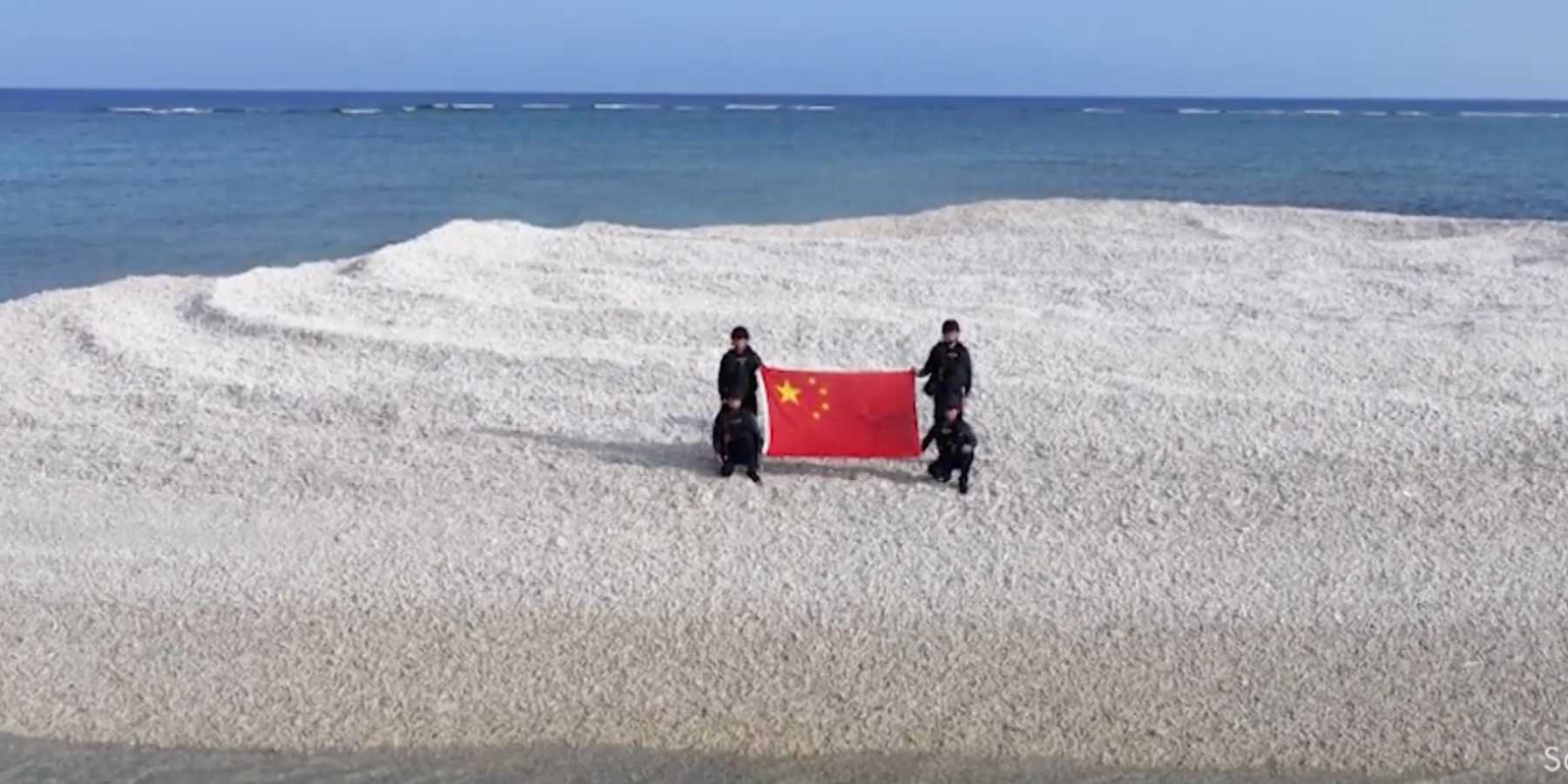The Philippines-China maritime tussle just edged up a notch this past week, with Chinese television reporting a Chinese flag-planting operation in a tiny cluster of sand banks in the South China Sea known as Sandy Cay.
Chinese personnel left after their operation, which apparently took place earlier in the month. The Philippines responded in kind soon after the announcement, with a combined team of its navy, coast guard, and police mirroring the Chinese action. The incidents took place in the backdrop of the major U.S.-Philippine annual exercise Balikatan, which began on April 21.
The situation in the South China Sea has been deteriorating since late 2023, when clashes between Manila and Beijing escalated dramatically. A limited agreement in July 2024 on the most dangerous flashpoint, the Second Thomas Shoal, has held up until now. Manila has been running resupply missions without incident to the tiny contingent of Philippine troops perched there since then. But as we predicted in August 2024, clashes have indeed spread to new geographies, keeping the overall tensions high.
Manila, which has named the West Philippine Sea its EEZ (Exclusive Economic Zone) as, might worry that Beijing’s show-of-sovereignty operation is designed to eventually occupy it and build military structures, similar to what China did at nearby Subi Reef about a decade ago.
But the operation was likely not just about possession of the reef — but about pushing the question of maritime rights and jurisdiction over the surrounding waters. In 2016, an international tribunal ruled these waters as being indisputably a part of the Philippine EEZ. But Sandy Cay, referenced as a high-tide feature in the ruling, is likely entitled to a territorial sea of 12 nautical miles, overlapping with Chinese-militarized Subi Reef. (The tribunal explicitly refused to rule over the sovereignty of Sandy Cay and determined Subi Reef to be a low-tide elevation generating neither a sovereignty claim nor its own territorial sea or EEZ.)
Sandy Cay is also very close to Thitu island where Manila maintains a military base. Thitu is also the only Philippine-controlled island with a permanent civilian population.
Chinese maritime coercion and illegal intrusions are increasingly of concern, not just to the Philippines, but also to wider Southeast Asia. The United States has been getting more involved in the imbroglio, deepening its commitment to its treaty ally, the Philippines, including with new U.S. military sites on the Philippine mainland.
If the current simmer boils over, U.S. troops could be exposed to risks over tiny features in the ocean that are arguably not a U.S. vital interest. A nuanced approach will be required of the alliance to both deter Chinese behavior and avoid stumbling into armed conflict at the same time.
- Major US-Philippine military drills kick off amid tensions with China ›
- Could a US-China War Begin over the Philippines? ›
- US stirring up more trouble in China-Philippines naval clash | Responsible Statecraft ›
















